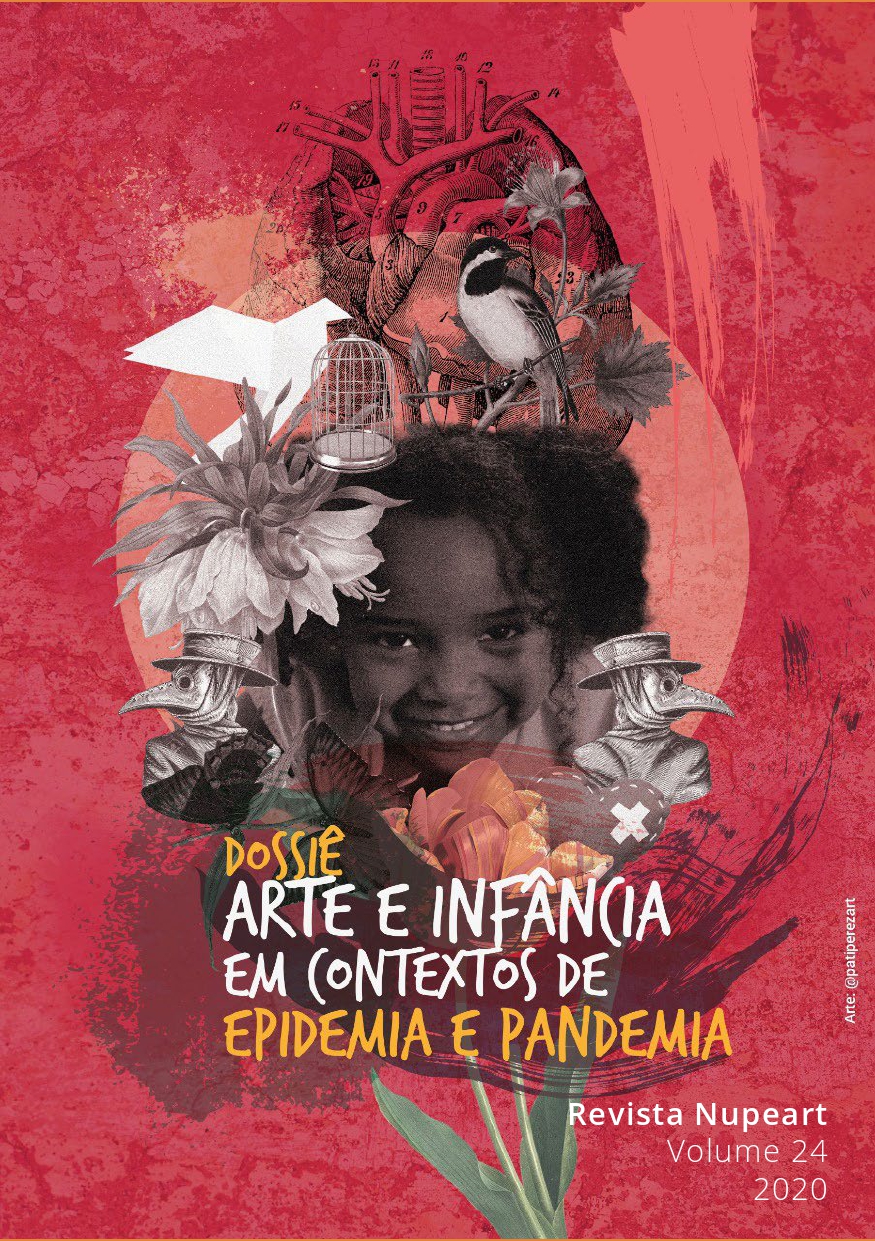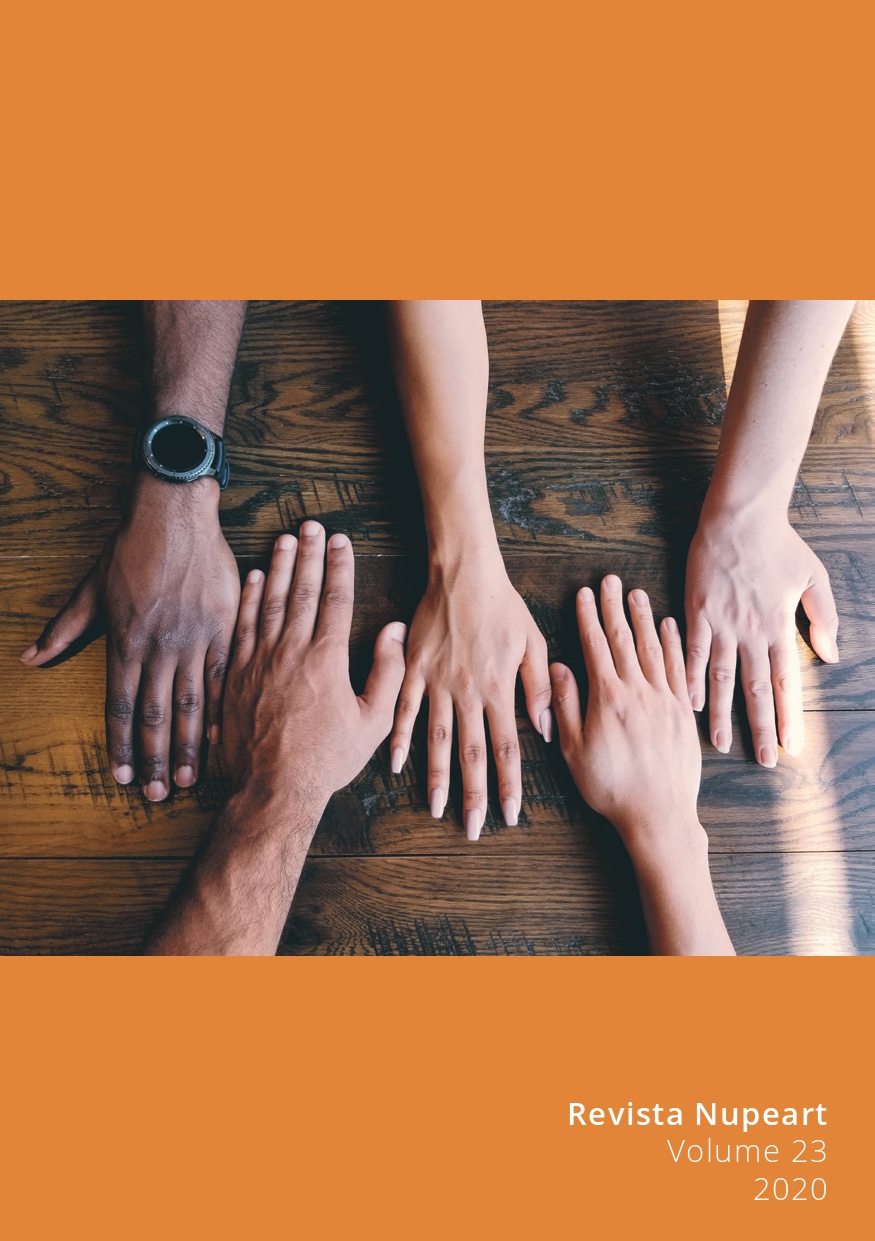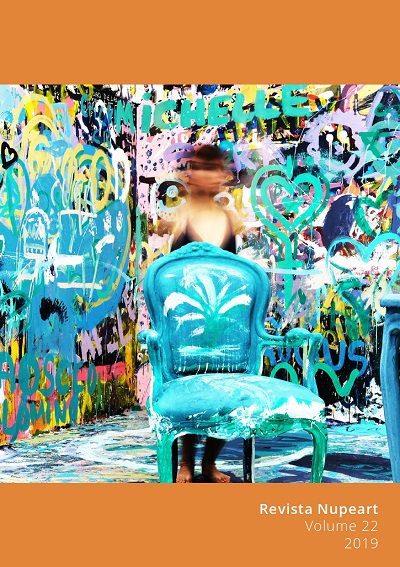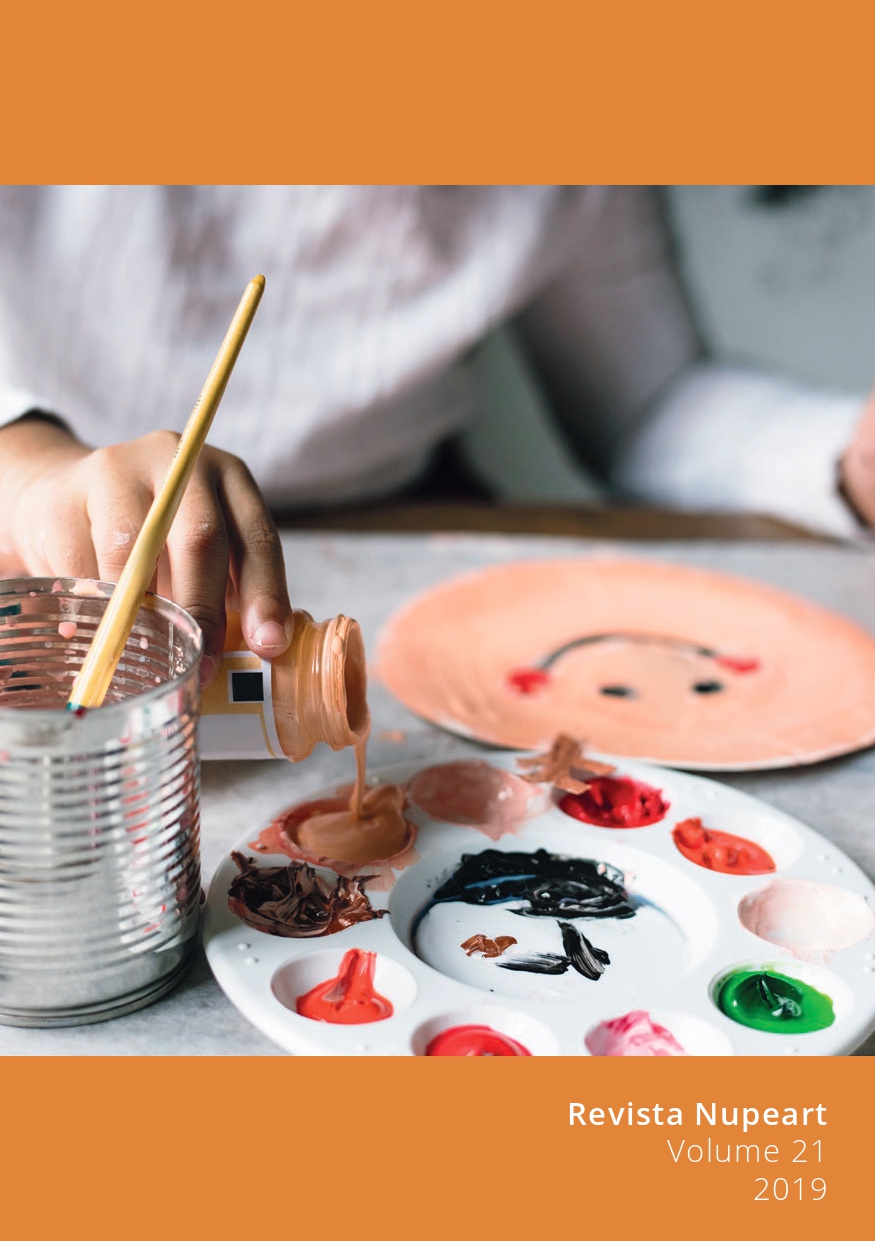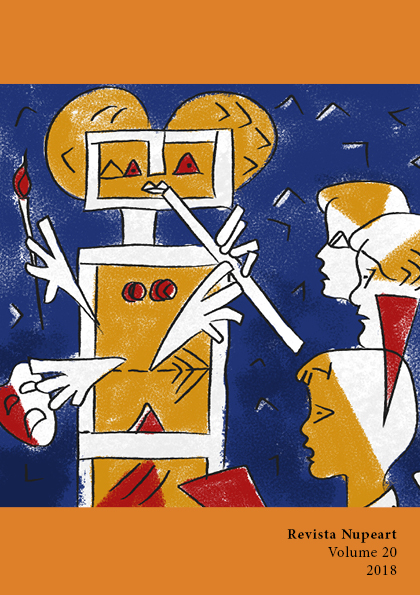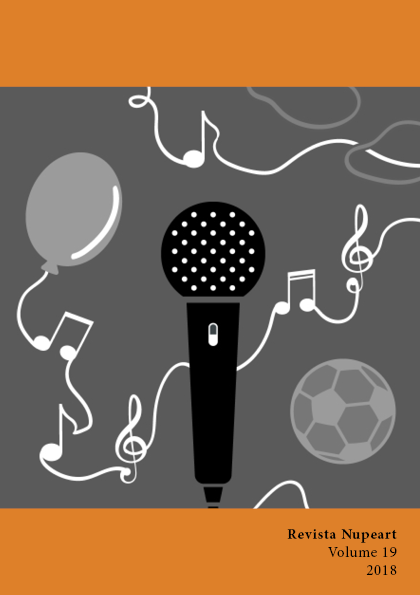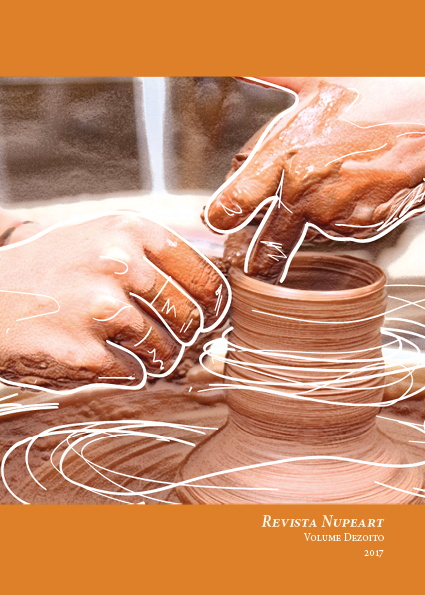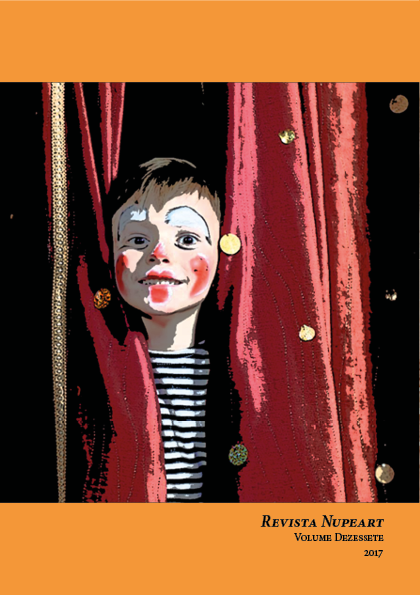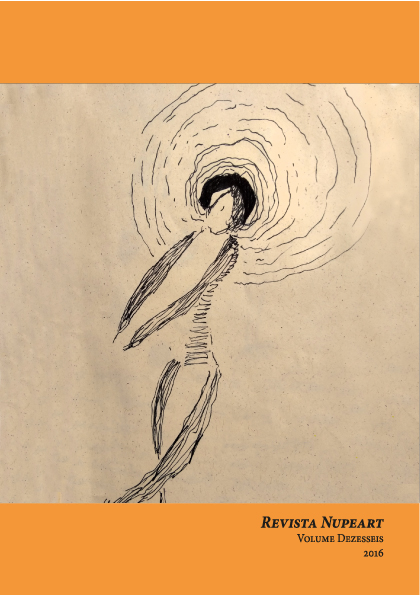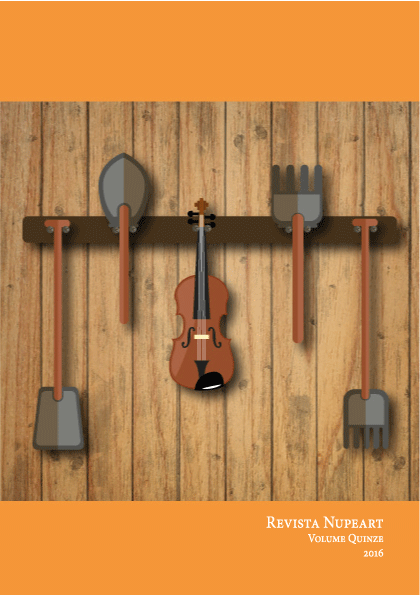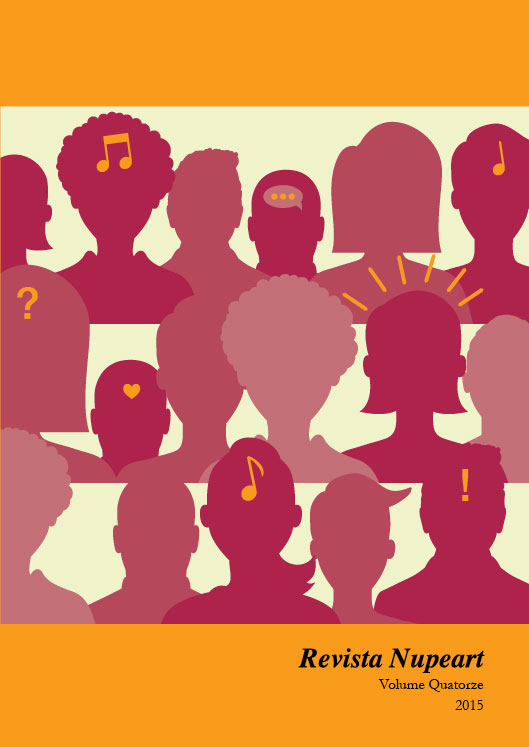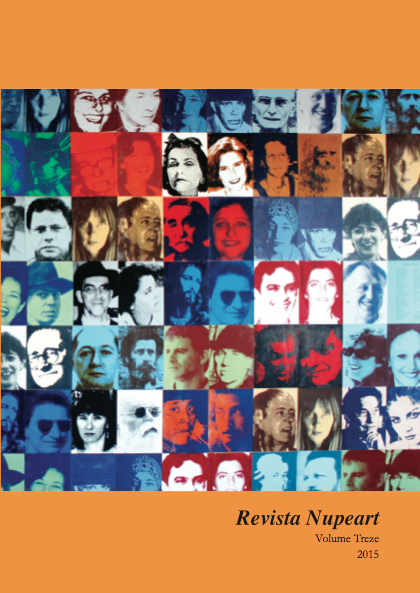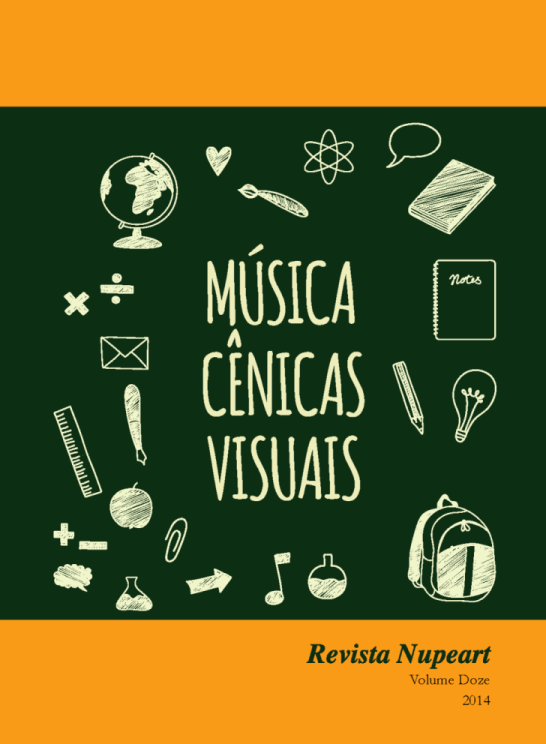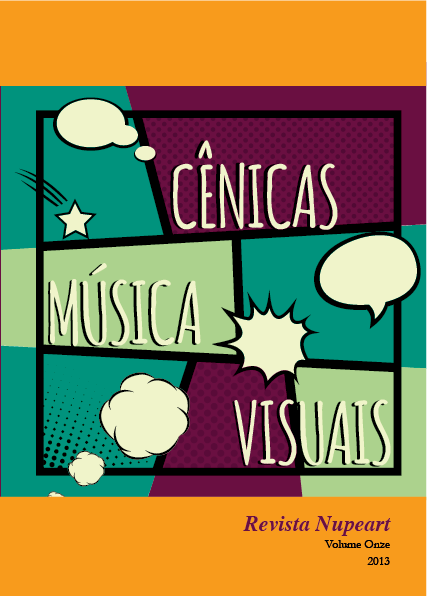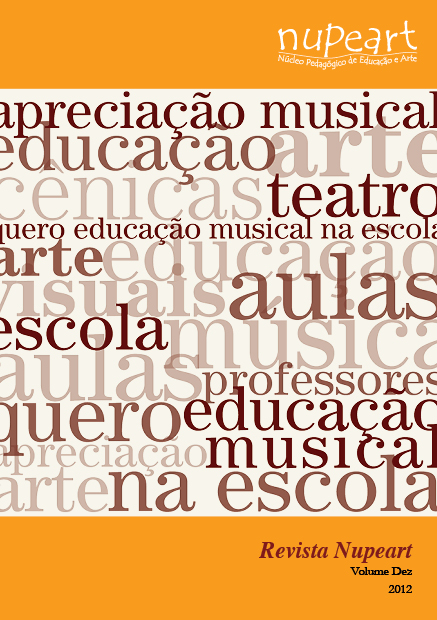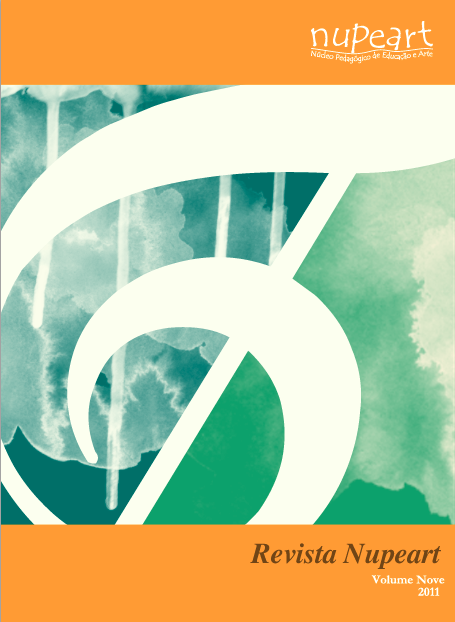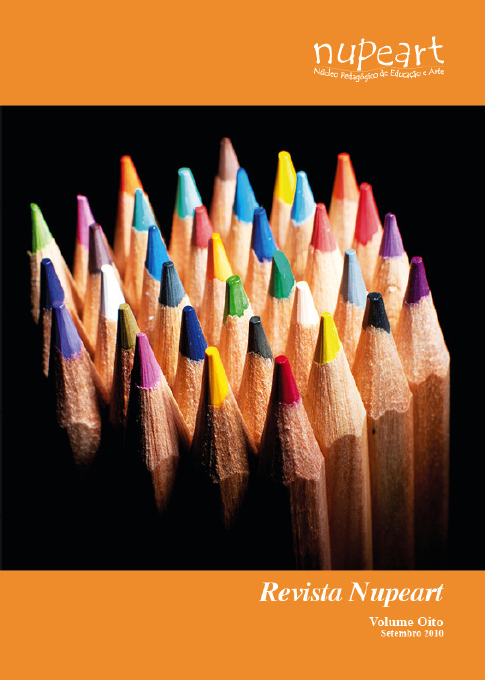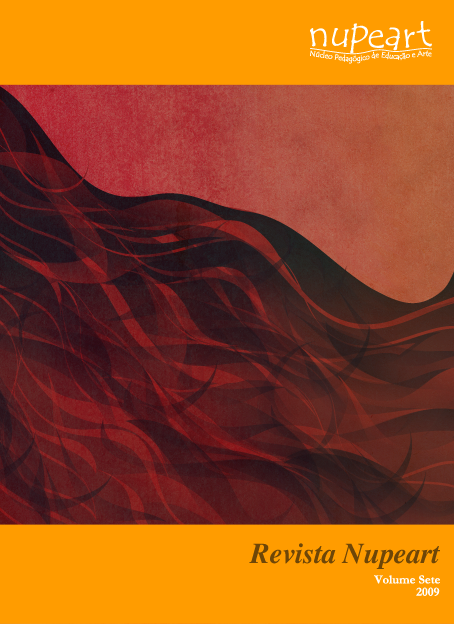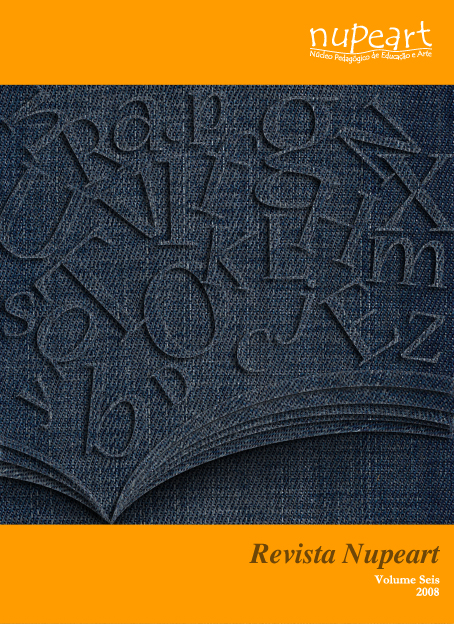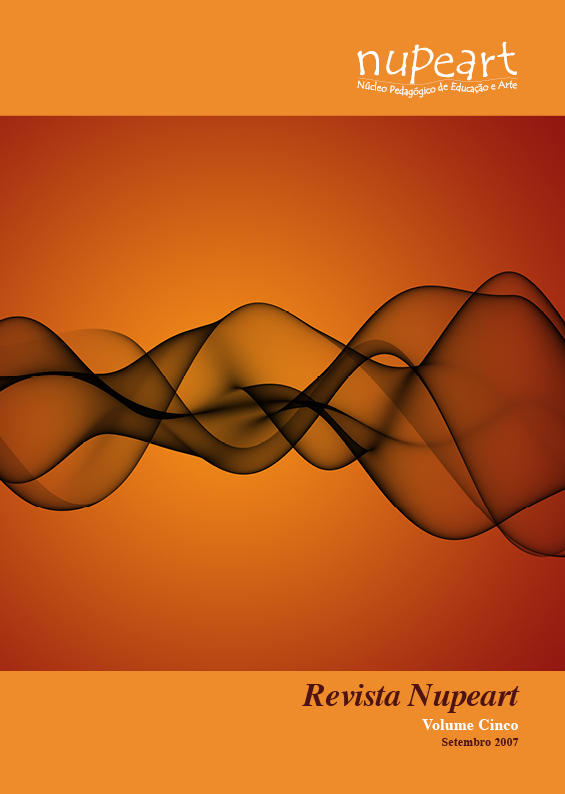Archives
-
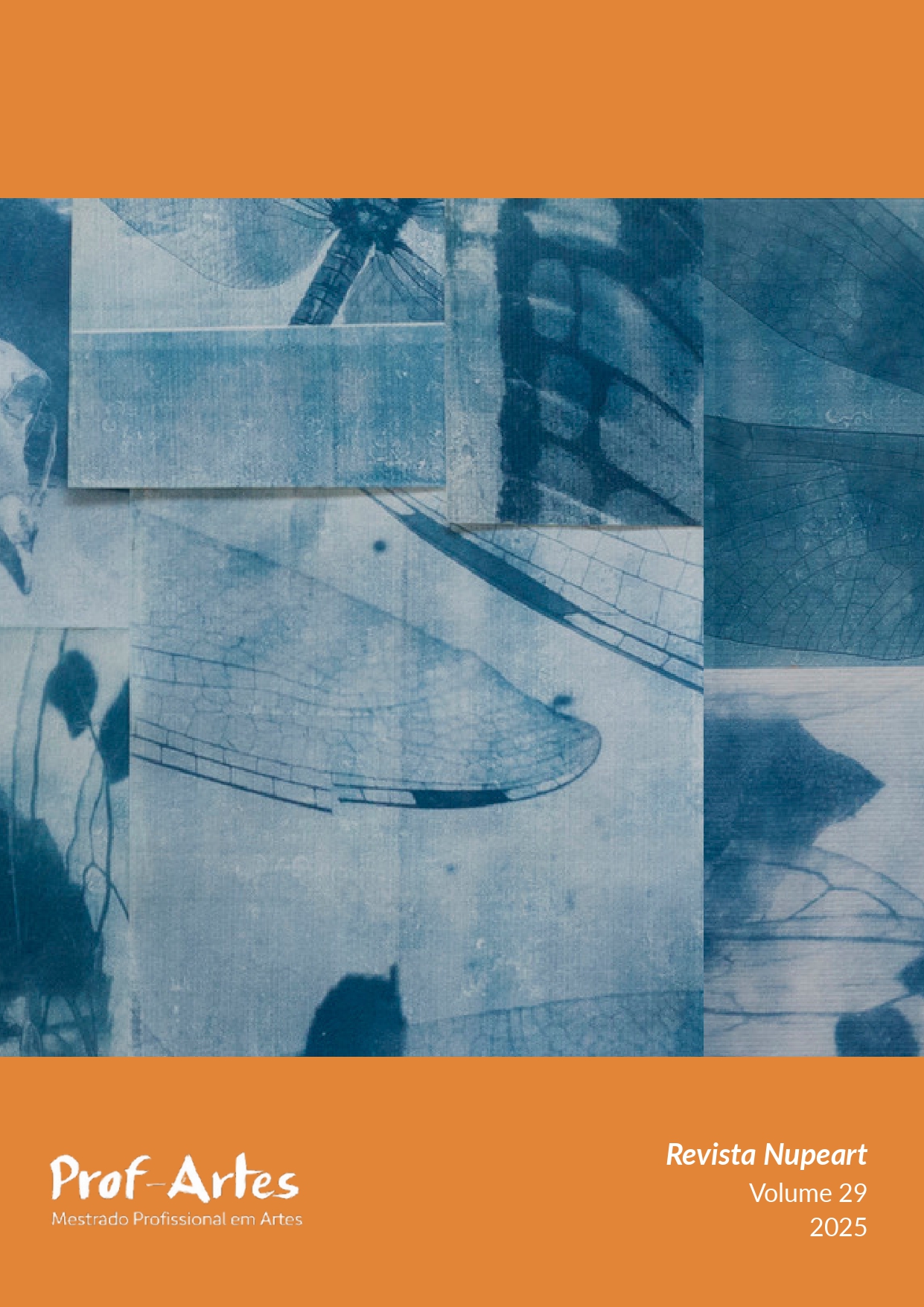
Práticas Pedagógicas em Arte
Vol. 29 No. 1 (2025)A Revista Nupeart, organizada pela rede do Mestrado Profissional em Artes (Prof-Artes), apresenta o volume 29 intitulado “Práticas Pedagógicas em Arte”. Este volume reúne artigos relacionados às áreas de Artes Visuais, Música e Teatro. As produções textuais discorrem sobre ações nos âmbitos da Educação Básica e do Ensino Superior. Os textos nos convidam à reflexão sobre metodologias, formação docente, práticas pedagógicas decoloniais, espaços formais e informais para o exercício docente e sobre o uso de materiais pedagógicos nas aulas de Arte.
-
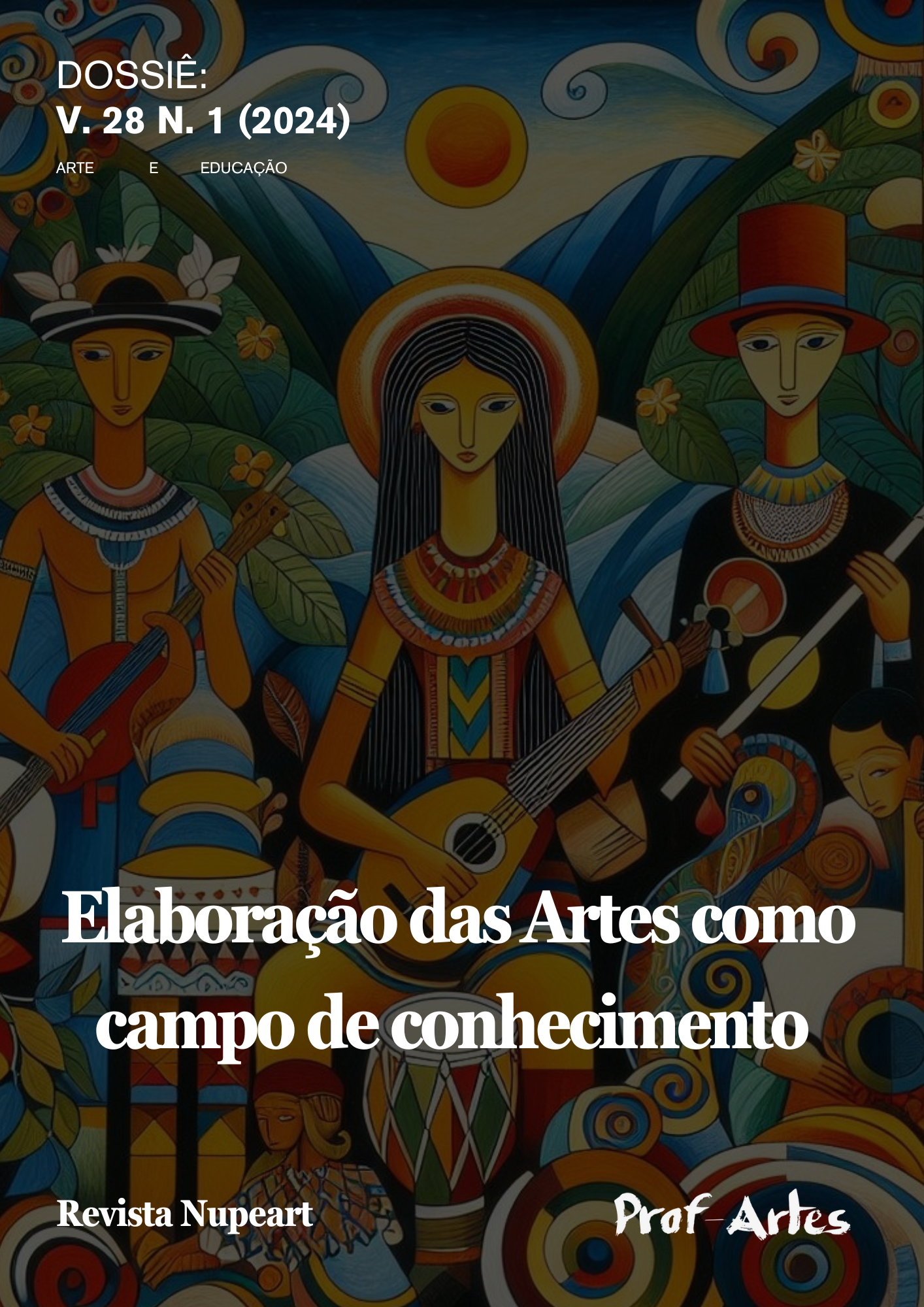
Elaboração das Artes como campo de conhecimento
Vol. 28 No. 01 (2024)O primeiro número do volume 28 da Nupeart - Revista do Pro-Artes, apresenta dez artigos do dossiê intitulado “Elaboração das Artes como campo de conhecimento” e mais quatorze artigos de fluxo contínuo que abordam temáticas ligadas às artes, educação e seus amplos aspectos interdisciplinares.
O dossiê “Elaboração das Artes como campo de conhecimento”, apresenta uma diversidade de textos que revelam registros históricos e biográficos sobre docentes de Artes pioneiros/as na implantação da educação universitária na graduação e na pós-graduação. São textos que abordam a vida, o trabalho e o legado de profissionais que tiveram influência no desenvolvimento do campo das Artes no Brasil.
Alguns textos são mais historiográficos, outros apresentam aspectos da via pessoal e sociocultural desses/as pioneiros/as e alguns dão ênfase ao desenvolvimento político da área de Artes no Brasil, no sentido da sua inserção nas agências de financiamento e de avaliação acadêmica. Alguns conteúdos abordam processos políticos, acadêmicos e socioculturais ligados a ações desses/as artistas, instituições, associações e demais grupos e agentes sociais do campo das Artes que desenvolveram ou desenvolvem seus trabalhos de modo influente no Brasil.
Neste dossiê é possível encontrar descrições e narrativas de acontecimentos e de processos de transformação do campo das artes em relação com sua afirmação como campo de conhecimento singular, acadêmico, político e sociocultural no Brasil. -
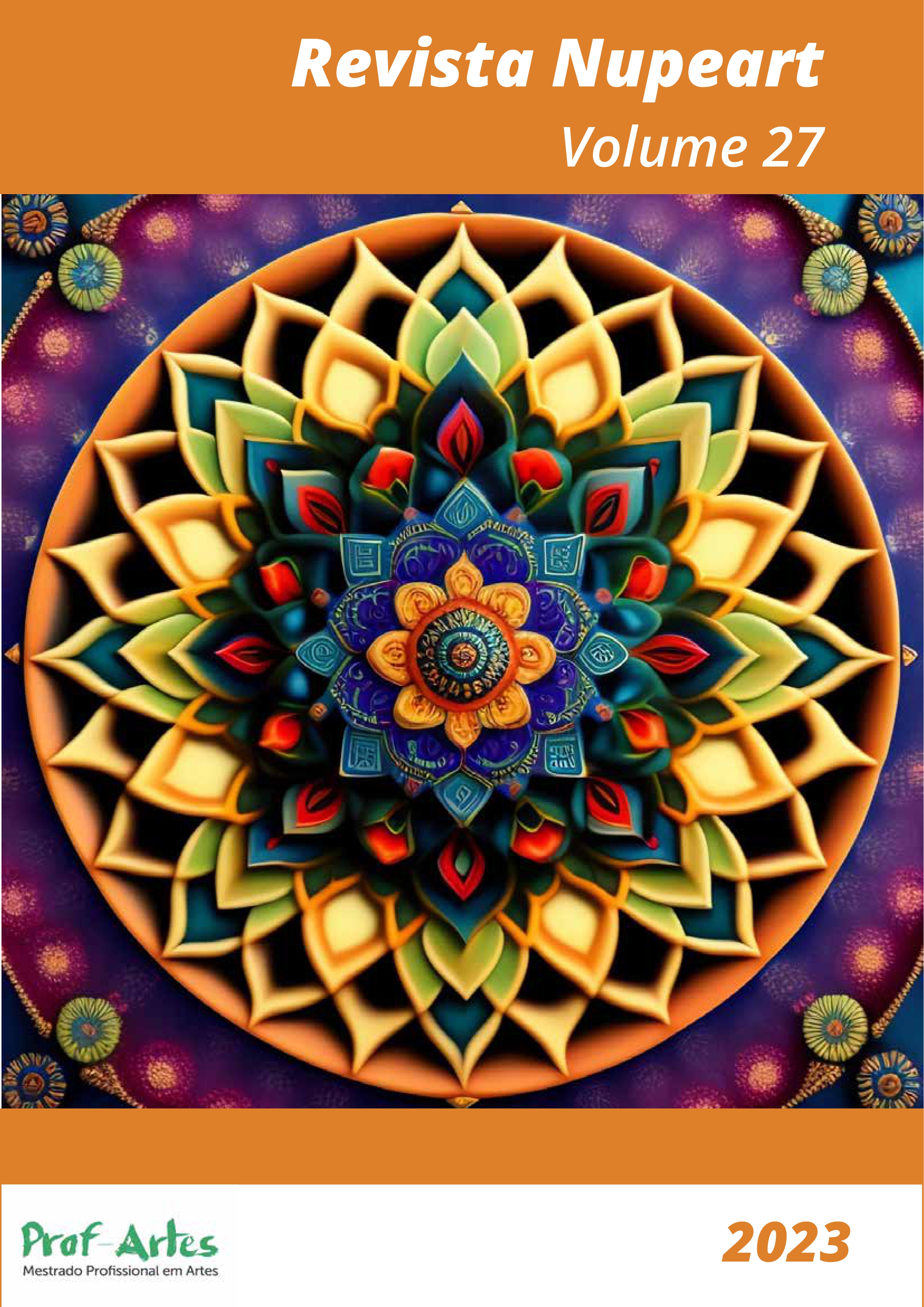
Methodologies of Art in Education for Contemporary Contexts
Vol. 27 No. 2 (2023)The collaboration between the Professional Master's Degree in Arts/Prof-Artes and the Pedagogical Center for Education and Art/Nupeart, made this Journal the responsibility of an Editorial Committee formed by professors working in the Prof-Arts of some Brazilian universities. The purpose of this publication is to disseminate teaching, research and extension actions related and identified with education and cultural themes, in order to contribute to the reflection on the experiences of researchers and teachers of art teaching today.
The Nupeart/Prof-Artes Journal maintains a hybrid profile in which texts received in a continuous flow will be published, to be published every six months, as well as dossiers based on specially invited articles. The objective of this work policy is to achieve the necessary comprehensiveness to make this Journal a vehicle for dissemination and a didactic volume for undergraduate and graduate studies in Arts.
For this issue, we have prepared a dossier based on the theme Methodologies of Art in Education for contemporary contexts, in which we propose to reflect on how to approach the humanist pedagogies that are currently being elaborated, with the desire to carry out a reconstruction of pedagogical practice in the Arts. These methodologies are being experimented with by teachers in basic education and university studies, however, they are not always systematized, remaining as isolated experiences in their loci. By bringing them together in this issue, the Journal seeks to stimulate reflections on how the teaching of arts and the interaction between art and education can break with colonialist procedures, as well as on how the procedures of creation in Art can contribute to the hybridization between contemporary pedagogies.
The work entitled "Between what is and what will be", by Professor Anamaria Fernandes Viana, brings discussions about the importance of developing educational technologies and methodologies for sharing knowledge and experiences, in the field of Dance Studies, that are open, fluid, relative and contextual. The teacher's text
Arthur Marques reflects on the teaching of dance as a methodology for teaching body studies, thinking that these can help to break with colonial structural logics, suggesting adherence to the pedagogy of the oppressed and the bixa ethics, concomitantly, as supposed markers of the praxis of the artist-teacher, proposing a neologism: professing. In her text, Professor Juliana Ribeiro proposes that in Early Childhood Education the Teaching of Arts and Dance can contribute as a possibility of dialogue between the objectives foreseen in the BNCC and learning from body and authorial research, in collective interactions and with the environment, seeking other logics for the teaching and learning process of schooling.
-
Fundamentos Teóricos da Arte na Educação: o contexto contemporâneo
Vol. 27 No. 1 (2022)Dossiê baseado no tema Fundamentos Teóricos da Arte na Educação: o contexto contemporâneo, no qual buscamos a articulação da produção de conhecimento na contemporaneidade com a reconstrução crítica de fundamentos teóricos reconhecidos para o ensino das artes. Acreditamos ser necessário estabelecer na atualidade uma ecologia de saberes, capaz de tratar também das teorias invisibilizadas e que tem sido epistemologicamente tratadas como não válidas, como é o caso dos conhecimentos artesanais, dos processos das lutas sociais e dos saberes tradicionais das culturas fora do restrito eixo europeu colonialista. Consideramos que esta é uma meta a ser conquista e compartilhada com o público leitor.
-

Dossiê Especial Prof-Artes
Vol. 25 No. 1 (2021)Dossiê dedicado a trabalhos desenvolvidos no âmbito do Programa Mestrado Profissional em Artes - Prof-Artes
